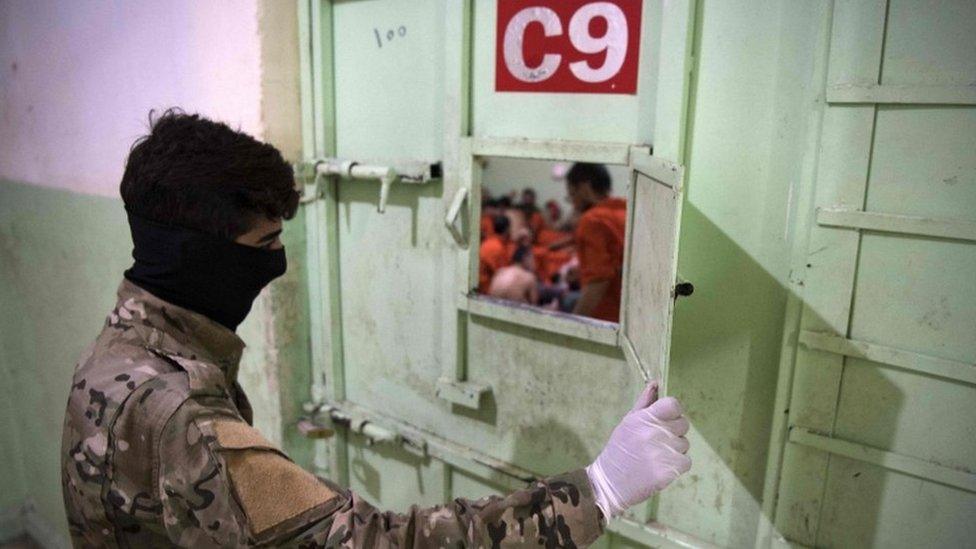Turkey to extradite American IS suspect 'stranded on border'
- Published
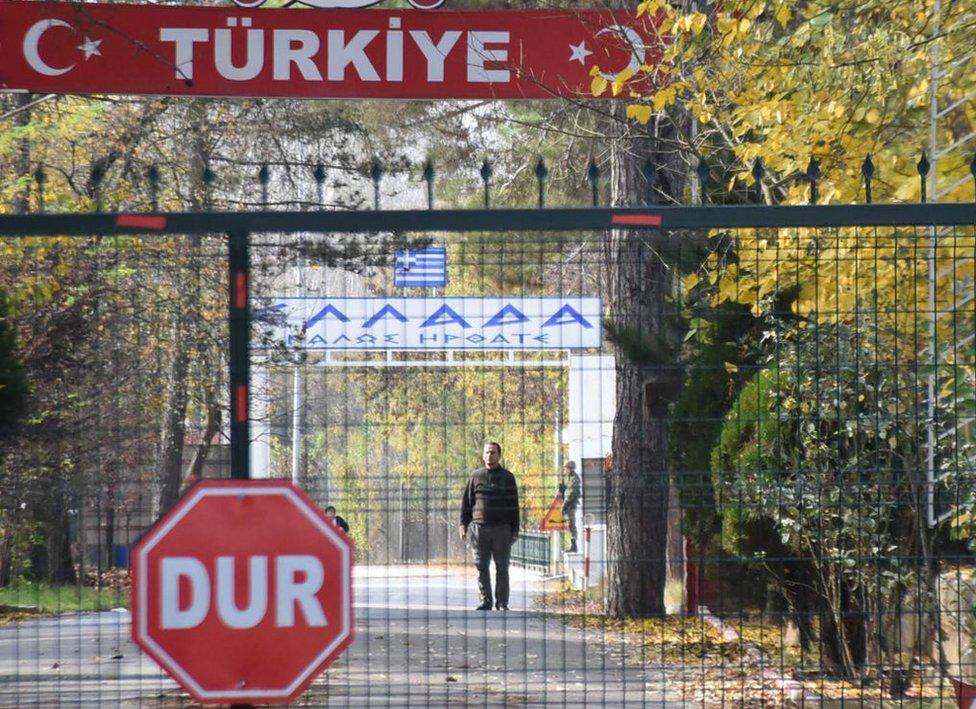
The deported man is allegedly a captured member of the Islamic State group
Turkey says it will extradite a US citizen suspected of being an Islamic State militant after he was refused entry to Greece and stranded on the border between the two countries.
The alleged militant will be extradited to the US.
He has been named by Turkey's Demiroren News Agency as Muhammed Darwis B and is said to be a US citizen of Jordanian descent.
Turkey is currently expelling a number of foreign Islamic State fighters.
The country's interior ministry said it had started the process of extraditing the man and the US had agreed to take him back.
"Upon guarantees that he will be taken back by the United States and that travel documents will be procured, the necessary proceedings have been started to send him to the United States," the Turkish statement said.
He was deported from Turkey on Monday as part of a drive to repatriate captured jihadist fighters held in its prisons.
A Turkish official told AFP news agency that he had refused to be returned to the US and instead asked to be sent to Greece.
However Greek police said they refused him entry when he tried to cross the border near the Greek town of Kastanies.

The fate of foreign IS fighters has been a key question since the defeat of the group in territory it controlled in Syria and Iraq.
Turkish President Recep Tayyip Erdogan says 2,500 such militants are in prison in Turkey.
According to the George Washington University Program on Extremism, 82 Americans are known to have travelled abroad to join jihadist groups since 2012. Of those, 19 have returned - 15 men and four women - and 13 have been charged.
A spokesperson from the US State Department said it was "aware of reports of the detainment of a US citizen by Turkish authorities" but had no further comment due to privacy considerations.
Who else has Turkey deported?
Turkey's interior ministry said it had also deported a Dane alleged to be an IS member on Monday. Danish authorities said their citizen had been arrested on arrival in Copenhagen.
Germany said one of its citizens had also been expelled.
Turkey said more than 20 other European suspects, including 11 French citizens, two Irish nationals and several more Germans, are in the process of being repatriated to their countries of origin.
Turkey has not confirmed whether those being repatriated were seized in Syria or in Turkish territory.
Some IS members and their relatives were captured in north-eastern Syria in October, when Turkey launched a cross-border operation against the Kurdish-led Syrian Democratic Forces (SDF) there.
At the time, the SDF said it was holding more than 12,000 suspected IS members in seven prisons in the area, at least 4,000 of them foreign nationals.
Relatives of suspected IS militants were also being held at a number of camps for displaced people - the largest of which, al-Hol, housed almost 70,000 people.
Why is Turkey deporting people?
Turkey has long accused Western countries of refusing to take responsibility for citizens who joined Islamic State.
Germany, Denmark and the UK have repeatedly stripped people of citizenship for allegedly joining jihadist groups abroad in a bid to block their return.
The UK is said to have withdrawn citizenship from more than 100 people - among them the IS recruit Shamima Begum, who left London as a teenager.
It is unclear whether Turkey will be able to repatriate IS suspects who have had their home citizenships revoked.
Shamima Begum told the BBC she never sought to be an IS "poster girl"
Last month the White House said it had urged "France, Germany, and other European nations, from which many captured ISIS fighters came, to take them back, but they did not want them and refused".
The White House said Turkey would now be responsible for all ISIS fighters captured in the area.
On Tuesday UN chief Antonio Guterres called for international co-operation to resolve issues around foreign jihadists, saying it was not up to Syria and Iraq "to solve the problem for everyone".
How will the repatriations work?
A French foreign ministry source told AFP news agency last week that suspected jihadists were often returned to France from Turkey under a 2014 agreement.
"Jihadists and their families are regularly sent back to France and arrested as they leave the plane. Most of the time it is done secretly. The news is not published, or released much later," the source said.
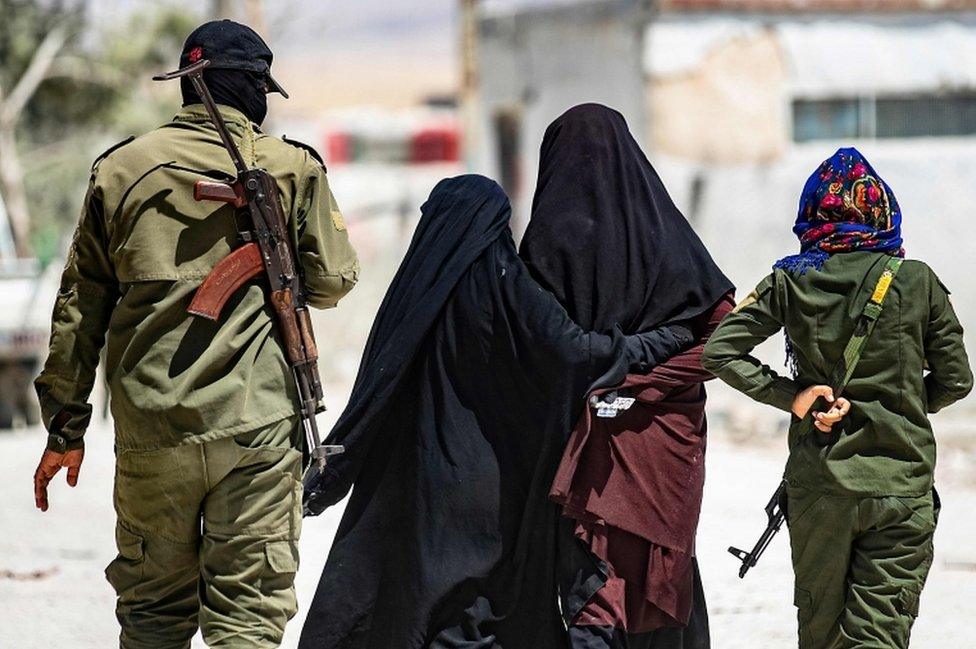
A security patrol escorts women, reportedly wives of Islamic State group fighters, at a camp in Syria
Germany's interior ministry said this week that "it did not wish to oppose the return of German citizens".
A German foreign ministry official confirmed that legal proceedings involving at least three men, five women and two children were under way in Turkey.
On Monday a court in the Netherlands ruled that the country should take back the children of Dutch women who joined IS - but not necessarily their mothers.
Some 23 Dutch women and their 56 children are currently being held in detention camps in Syria, AFP reports.
- Published10 October 2019
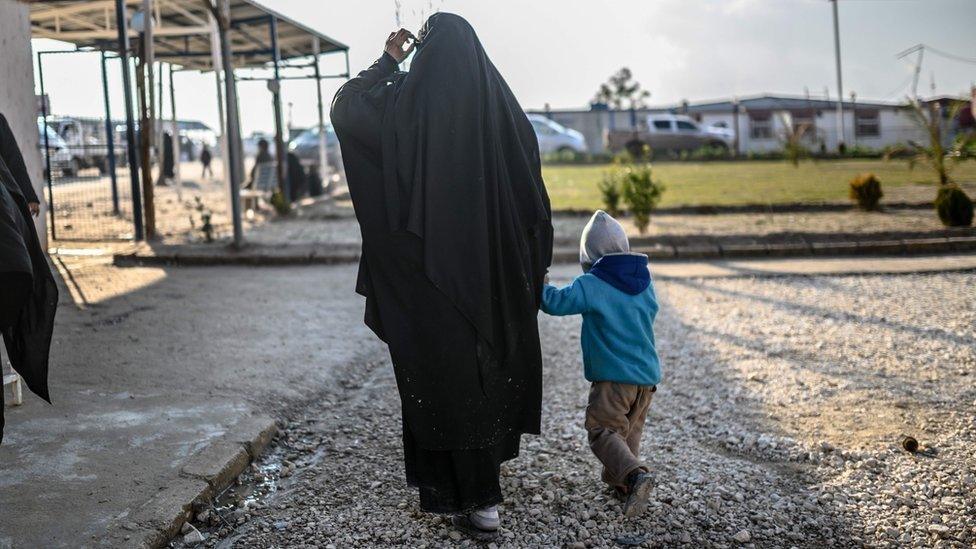
- Published15 February 2019
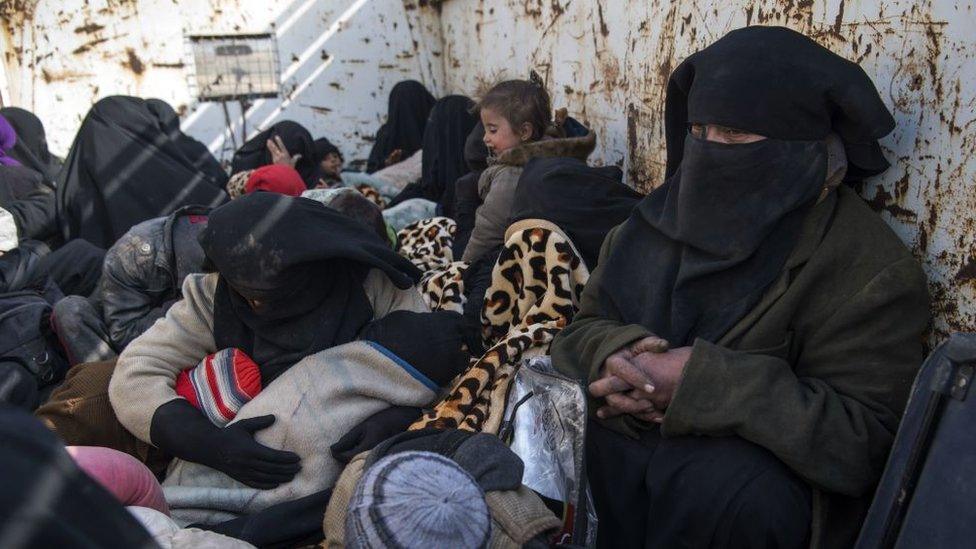
- Published26 October 2019
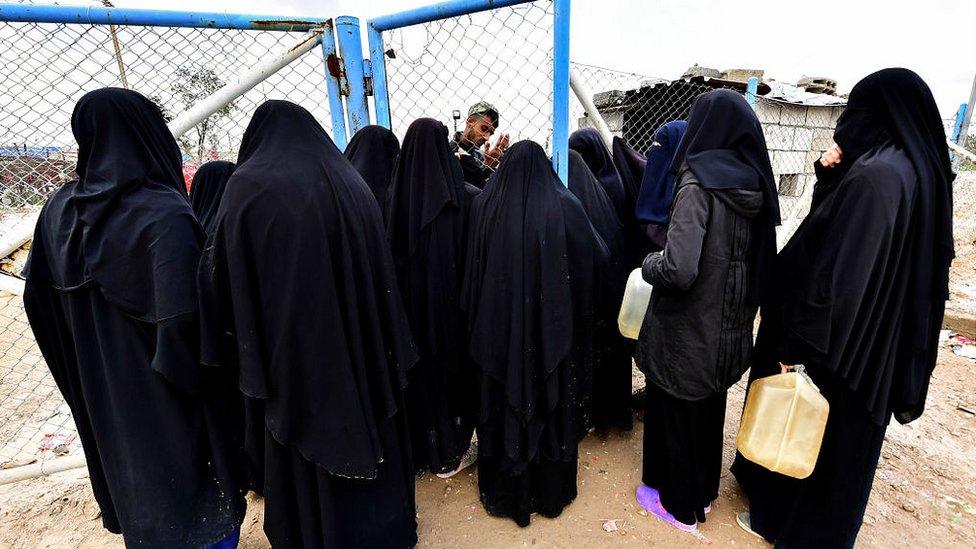
- Published13 October 2019
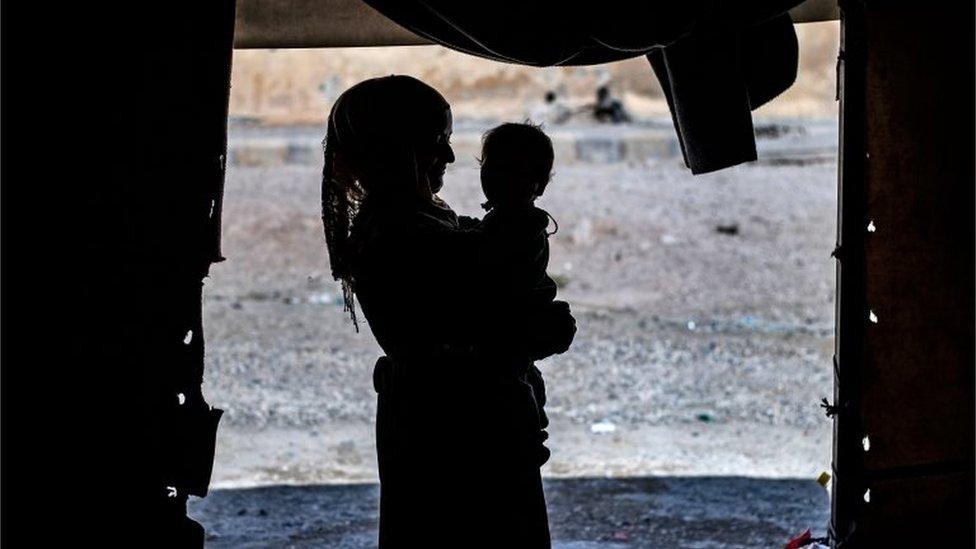
- Published11 November 2019
